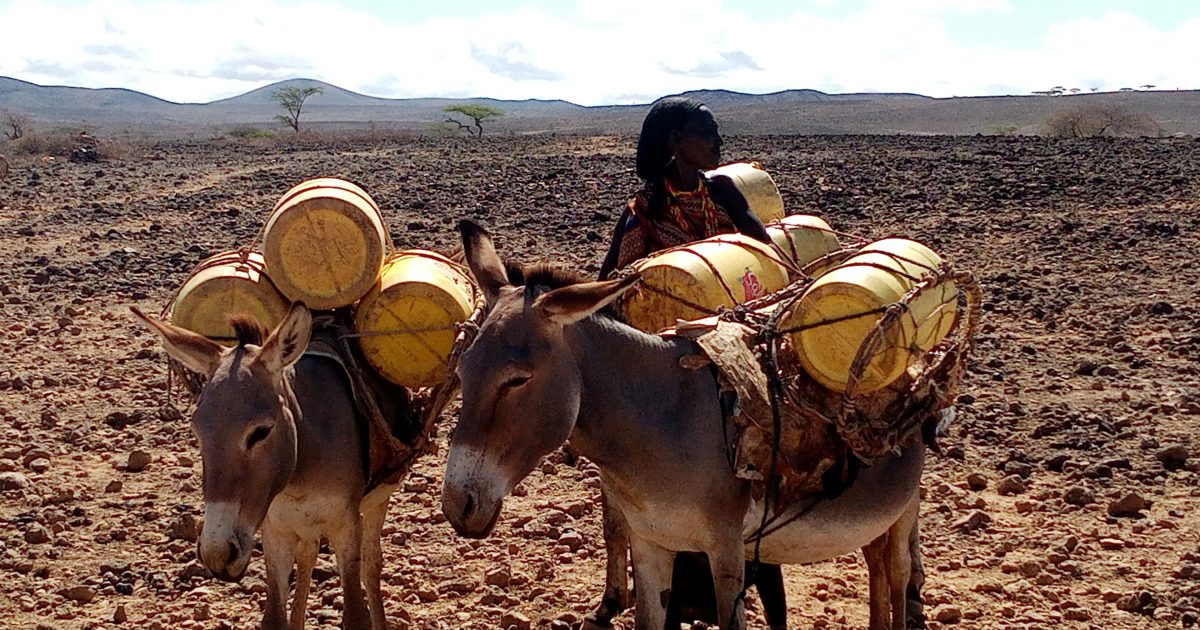The African Network for Animal Welfare (ANAW) is insistent that the Kenya government should de-legislate the slaughter and trade in donkey products.
The organisation which has teamed up with other animal health champions are particularly concerned about the heightened demand for donkey skins for the production of Ejiao in China.
Speaking to KNA in Marsabit town, ANAW Animal Welfare Programme Officer, Dr Dennis Bahati cited smuggling of donkeys from Ethiopia into Kenya as an issue of major concern.
Bahati appealed to the government to enact law to prohibit the trade in donkey skins in order to protect the animal which is threatened with extinction.
Kenya is a host to four donkey abattoirs with a slaughter capacity of 1000 donkeys per day which experts from ANAW say is not even remotely sustainable and could see the donkey population in the country wiped out in two years’ time.
The programme officer who had led by a team on a fact finding mission in Marsabit county’s Sololo and Moyale sub-counties, called on the government to enhance patrols on the Kenya-Ethiopia border to stem rampant smuggling of donkeys from the neighbouring country.
“These animals are smuggled into the country for slaughter to get the skin which is highly valued as an export to China,” he said and urged the authorities to step up the restrictions.
ANAW is working closely with the department of livestock and that of veterinary services in Marsabit as it makes efforts in creating awareness on the plight of the animal and the danger involved in the illicit trade.
According to the organisation, donkey owners are often left exposed as their animals are stolen to meet demand to make Ejiao, a traditional Chinese medicine.
Bahati blamed the problem on the lack of laws or regulations that govern the welfare of donkeys.
“Donkeys are often overworked, neglected, abused and stigmatised,” he noted adding that among other ailments the animal is always left to suffer from harness sores, maggot wounds, infections and colic from poor fodder.
However, there was a reprieve in February 2020 when the government through the ministry of agriculture issued a directive stopping the slaughter of donkeys at the four abattoirs.
Bahati said that the ban which has since been challenged in court was not enough adding that there was need to put legislation in place to make donkey slaughter and trade illegal.
The Animal Welfare and Protection Bill that creates new offences and enhances penalties to safeguard the welfare of farmed animals is before the national assembly and ANAW now wants the country to seize the opportunity to ensure that the visibility and welfare of the donkey is entrenched.
Donkeys are working livestock and are critical to the livelihoods of virtually every household in Marsabit County and its neighbours.
A spot check at Butie area in Moyale sub-county revealed that access to the traditional beast of burden gives women the opportunity to be more productive in the community where their economic role is not that much recognized.
Women in this area use the donkeys to fetch water and firewood, transport food stuff from the market besides using the beasts of burden as means of transport when they shift during migration.

Men on the other hand use the animal to do business which involves hawking water and firewood in urban centers and fetching contraband commercial goods from across the Kenya-Ethiopia border through panya routes.
Thorough scrutiny also established that donkey smugglers in Ethiopia are currently avoiding the formal border crossing points by using panya routes where border controls are lacking.
The animals are then sold to brokers who then illegally ferry them in Lorries to sell in Kenyan donkey slaughterhouses located in the Rift Valley the risk of importing and spreading zoonotic diseases notwithstanding.
A donkey slaughter house that was opened in Debrezeit in Ethiopia in 2017 was closed down a few months later owing to a public outcry after the practice was found to go against the local cultural and religious values.
As the government steps up efforts to eradicate cattle rustling which involves cattle, camels, goats and sheep among pastoralist communities, criminals have seen a new avenue in donkey thefts and raids.
Two counter raid incidents in Loiyangalani area in which 60 donkeys were stolen left a police officer who was in a contingent pursuing the armed raiders with serious gunshot wounds last month.
Marsabit County Commissioner Paul Rotich said that the new dimension of animal raids was under investigation saying the practice was pronounced in Loiyangalani sub-county.
One wonders what is making the donkey trade so popular and lucrative. Though scientific proof is scarce, Ejiao is believed to cure anemia, reduce human skin wrinkles, shrink tumors and above all boost libido among other benefits.
Bahati said that there has been a growing consumer surge of Ejiao among the Chinese middle class.
The program officer described the situation as sad with 160,000 donkeys having been slaughtered in 2018 alone which translates to 8.1% of its population.
There was also illegal slaughtering in the bush exposing the nation to danger of spread of anthrax, ecological pollution from the disposal of donkey carcasses.
“I am however worried by the fact that the average donkey pregnancy lasts for well over a year against China’s need for 4.8 million skins per year,” he said and added “This means it would take at least 10 – 15 years for new farming systems to meet the demand.”
Kenya government data published at the end of April this year shows that the donkey population in the country has reduced to 1.2 million from 1.8 million ten years ago.
Residents of Olla Haro area in Moyale sub-county said cases of lost animals are always reported to local chiefs but they are never traced or recovered.
Donkey farming is not only confined to pastoralist areas but also prevalent in Kisumu, Nyandarua, Kajiado, Nakuru and Kitui counties.
Many people in Kenyan rural areas use donkeys for transportation, fetching water and firewood which raises fears that their decreasing numbers would escalate the amount of work for women.
By Sebastian Miriti




